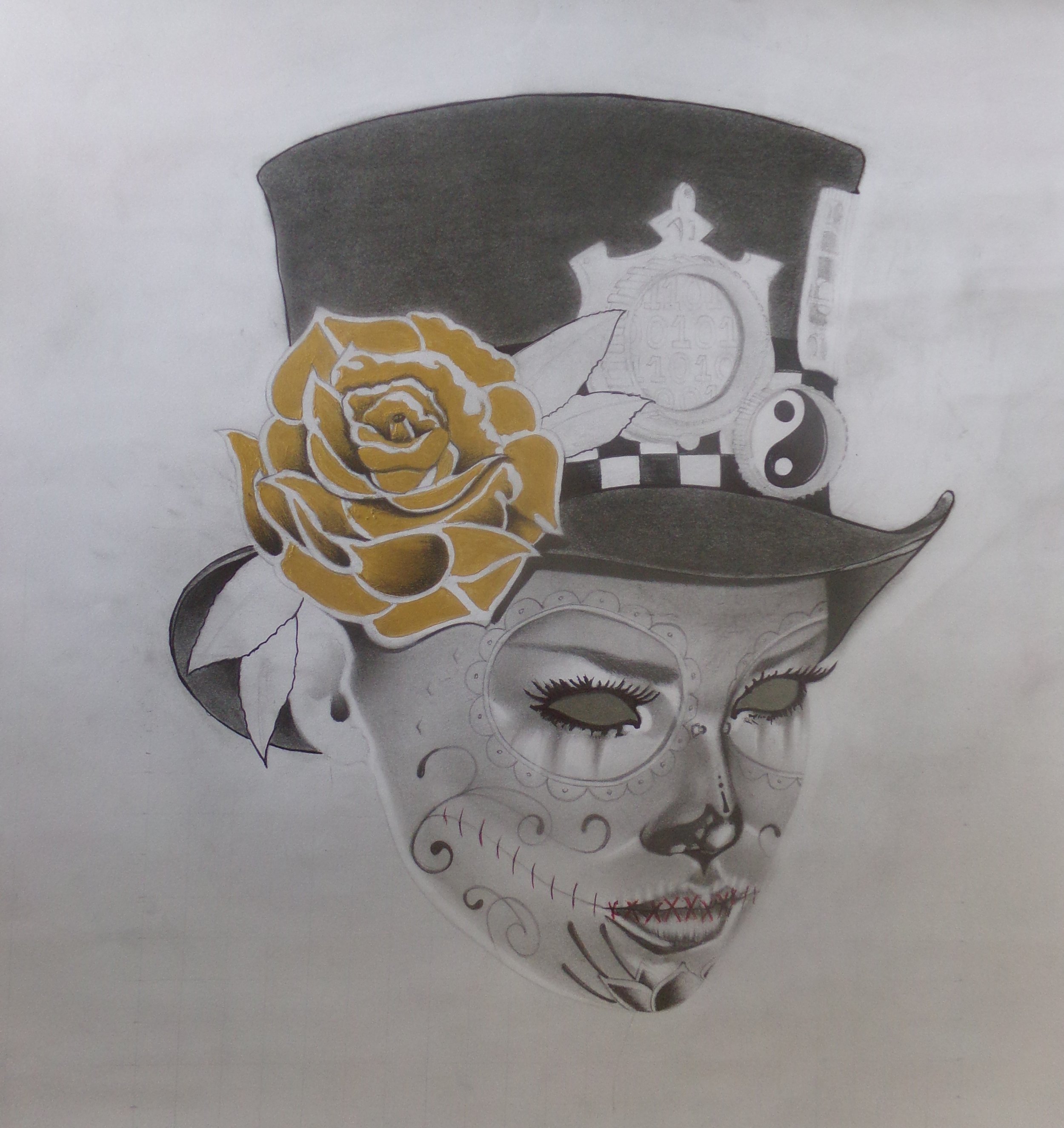How are we thinking, talking, and learning about ageing?
Join the conversation at Warwick Arts Centre as we explore the topic of ageing. This event will include a series of talks, with an exhibition and activity in the Warwick Arts Centre foyer.
Our guest speaker, internationally best-selling author Carl Honoré, will share thoughts on ‘Embracing Ageing as an Adventure’ alongside researchers from the University of Warwick who will discuss how they are tackling questions about this important subject across a range of fields including criminology, sociology, history, employment, psychology and life sciences.
Event Information
Event timing: 6:00 - 9:30pm (Doors and exhibition from 6:00pm, talks start at 7:00pm. Interval from 7:45 - 8:15pm)
The viewing of ‘Timing Out: Creative Reflections on Prison Life’ will be open from throughout the event, and stalls in the foyer will be open from 6:00 - 7:00pm and during the interval.
This event is aimed at those 18+ but those aged 14+ are welcome to attend with an accompanying adult.
Registered attendees will receive a token for a complementary drink and light snack.
-
Talks and activities at this event may discuss topics such as ageing and ill-health.
Some displays at the exhibition in the foyer, ‘Timing Out: Creative Responses on Prison Life” will share creative outputs which cover sensitive and potentially re-traumatising subjects including those of oppression, marginalisation, structural and interpersonal violence, crime and confinement.
The talk titled ‘Targeting the Biology of Ageing to Improve Healthspan’ will include reference to ill-health and the use of an insect model in biomedical research.
The display titled ‘Sickness and Sin in the Books of Homilies’ in the Foyer will be a discussion of infirmity and disability, which will engage with the terms used in the Books of Homilies - a text created to instruct and inform its audience on religious models of behaviour.
The display titled 'Reading the Ageing Body' in the Foyer includes research materials that engage with themes such as suffering, death, pain and grief.
The stall from Good Neighbours Coventry will discuss Isolation & loneliness health risks
Talks will include:
-
We are living better for longer than ever before. Scientists, artists and entrepreneurs are hitting their stride later in life. Pop culture, from movies to modelling to the media, is carving out more room for people past the first flush of youth. Bottom line: there has never been a better time in history to grow older. Drawing on the latest science, personal experience and case studies from around the world, Carl inspires audiences to embrace aging as both a privilege and an adventure.
-
Hear from Professor Philip Taylor:
As people live longer, many of us are being asked to work longer too. This talk explores what longer working lives mean in practice — the opportunities and the challenges. Drawing on research into retirement, ageism, job quality, and later-life careers, I’ll show why age alone doesn’t define ability, and how a mix of structural, personal, and cultural factors shape choices. The focus will be on how workplaces and policies can be redesigned to make longer working lives fairer, more flexible, and more rewarding.
-
Hear from Dr Luke Hodson:
In this talk, the beauty of everyday life will be discussed, and the impact that daily, 'normal' activities can have on our wellbeing, and ultimately contribute to successful aging across the lifespan.
-
Hear from Dr Cathy Slack
Age is the biggest risk factor for a range of different diseases. By better understanding the biology of how and why ageing occurs, we can uncover what drives the changes that lead to poor health. I will explain how research using a simple model - the fruit fly - is leading to important knowledge about the biology of human ageing which we hope will one day lead to therapeutic approaches to help people stay healthier for longer.
Please note: This talk will include reference to ill-health and the use of an insect model in biomedical research.
At the Exhibition (From 6:00pm - 9:30pm)
Timing Out: Creative Reflections on Prison Life
This exhibition presents visual art, music and poetry created by men serving long sentences in a high-security prison in England. Researchers from Warwick’s Department of Sociology and School of Law engaged with these men in the context of an education programme delivered at the prison. The exhibition’s theme, “Timing Out: Creative Reflections on Prison Life” considers how life unfolds within constrained horizons of time and within controlled spaces. What does it mean to move through major stages of life - youth, adulthood, and old age - while in custody, when imprisonment disrupts the typical markers of work, education, family, and community? How does growing up or growing older behind bars shape one’s identity, perception of time, and their sense of belonging and justice?
Work title: Allegory of Justice (2025)
In the Foyer (from 6:00pm - 7:00pm and during the interval)
(With more to be announced)
-
Memory Lane Café is a student led group offering a supportive and welcoming environment for members of the community living with dementia and their family/carers. They run weekly sessions, which give visitors the opportunity to have a chat and a cuppa, as well as an activity to encourage cognitive stimulation, communication and/or creativity.
-
The idea that we become more infirm as we age, that we are more likely to struggle with bodily dysregulation or disability, can be a source of considerable anxiety. During the English Reformation, ideas surrounding ageing and infirmity were reforged, creating new perceptions and representations of illness and disability. Combining critical disability studies to examine the Books of Homilies, a text created to instruct and inform its audience on religious models of behaviour, sheds light on how disability was represented, and how infirmity existed not solely in relation to ageing, but was experienced by all in the face of God.
-
A showcase of research materials that focus on how the ageing body, and physical decline, was understood and experienced historically compared to the modern day. The particular focus is on observation practices and coping strategies in seventeenth-century England.
Pre-modern approaches and responses to physical decline were underpinned by a distinctive logic pertaining to the workings of the body. Human beings were conceived as ‘ensouled’, their bodies comprised of humours and fluxes, and bodily processes were fundamentally linked to the motions of the heavenly spheres. In this context, coping strategies incorporated religious exercises into the therapeutic process. Moreover, bedside attendants sought to discern divine messages and spiritual truths through observable phenomena of the sick and dying body.
Just like today, early modern people exhibited a profound preoccupation with physical decline. They lived in their bodies as we live in ours, but the meanings they assigned to this phenomenon were very different. The showcase demonstrates that bodily events are deeply cultural phenomena, powerfully mediated by historical context.
-
How does loneliness occur, and impact health as we age? Come & explore ways to tackle isolation in over 50s in Coventry, and how you could make a new intergenerational best friend.
HOPE Coventry's Good Neighbours project has befriended & supported over 3800 over 50s since 2016. Linking older people to volunteer befrienders of all ages, and 630+ community groups, for flourishing two-way friendships.
About our Guest Speaker:
Carl Honoré is an award-winning writer, broadcaster and speaker. His bestselling books have been published in 36 languages and his online videos have more than 10 million views.
Carl’s latest book, Bolder, explores how we can age better and feel better about ageing. It’s a spirited takedown of ageism and a blueprint for harnessing the new longevity. Bolder was a BBC Radio 4 Book of the Week and a Reader’s Digest Book of the Month. In 2024, Carl was named as an Advocate for Aging by the American Society for Aging and Next Avenue.
Resonate events are always free to attend. Tickets are non-transferrable and only available directly from the Resonate Website.
This event is in collaboration with the 2025 ESRC Festival of Social Science.
Resonate supports the United Nations Global Sustainable Development Goals. The symbols below indicate which of the 17 goals this event aligns with.




